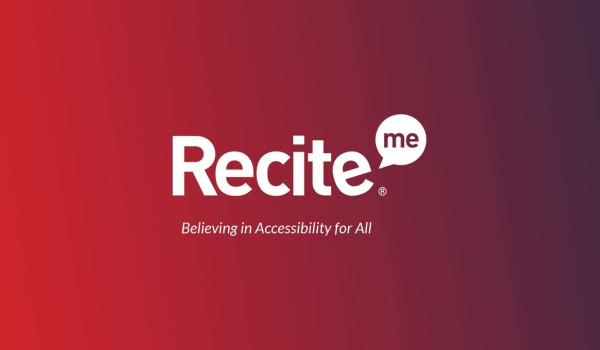For organisations in the modern-day, it is vital to cope with the changes of our fast-moving world in order to stay on top of business and client needs. Whether it be technological advances or new industry standards, there is always something that could be improved upon in a company's practices that will leave them better equipped for the future. But how, practically, are businesses supposed to implement changes and ensure that they are remaining most competitive?
Many companies are beginning with their current employees; helping them be prepared with new skills through something called 'upskilling'. Businesses have started relying on the upskilling of their workers to keep them in competition with others in the industry - but what exactly is upskilling, and why are so many companies increasingly turning to it?
What is Upskilling?
'Upskilling' essentially refers to 'upping' or increasing one's skills. More specifically in the professional sector, upskilling involves giving employees the opportunity to develop skills and learn new things that could be beneficial to themselves as well as their role at the company.
In modern day businesses, upskilling is a great way to show employees that you are invested in their careers and care about providing them with the best training in this rapidly-changing work landscape.
Upskilling also saves money, improves customer satisfaction and keeps your company adaptable for future industry shifts; meaning that when you upskill, everyone benefits in the long run.
What are the Benefits of Upskilling Employees?
Boosting Employee Morale
The biggest benefit of upskilling is improving worker morale and well-being. Your workforce wants to know that you care about their career path, learning and professional development. Therefore, investing in their training and growth in new skills will keep employees satisfied and help them to feel valued and in-demand, within your company and in the industry.
Future-Proofing your Business
The world of business is in a constant state of change and growth, and employers would hope to see their business reflecting this dynamic. By upskilling staff and fostering further learning, you are allowing your workforce to be well-rounded, up-to-date and on the cutting edge of new ideas, changes, and techniques within your industry. This helps everyone in the current workforce to have a more competitive advantage and helps keep your employees and your business adaptable and ready for whatever developments will come next.
Retention
Employee retention is a highly important part of keeping your workforce low-cost and running smoothly, as losing and rehiring employees for new roles can cost your company thousands every year. Hiring is also a major stress on HR professionals' day-to-day work. Maximising retention is essential, not just for workforce well-being, but also because it holds huge financial benefits for the employers as well. If an employer invests in their current employees' skills through upskilling efforts and keeping them confident in their work, it is ultimately more cost-effective, despite the initial sticker shock that may come with integrating upskilling tools into your workplace.
Customer Satisfaction
Retraining and upskilling employees not only refines their hard skills, but also builds soft skills such as confidence and adaptability. Both these types of skills will have a positive effect on what they can do for your customers and clients, so upskilled employees ultimately mean better and more effective professional interactions.
How to Upskill Employees
Conduct a Skills Gap Analysis
The first step towards upskilling is identifying where the needs lie in your workforce - which hard and soft skills are in-demand and what gaps there are in your employees' skill sets. These skills gaps could be anywhere from digital skills, logic or even proofreading and spelling. Recognising these gaps will then help employers create personal development plans for upskilling or reskilling employees in the workplace in order to boost their skill level.
Accommodate Everyone
When beginning to invest in an upskilling program or hiring new talent to help facilitate the reskilling or upskilling of workers, be sure to take into account that no two people learn the same. Therefore, having a variety of learning options available to workers will help increase employee engagement with these training programs.
One way to help guide decisions regarding what would be best for your workforce would be implementing a personality test (such as our Skillsarena Character DNA Personality Test). Having access to the results of such a test would make it easier to recommend what methods would be best for each team member as they start to upskill and begin further professional and personal development.
Choose what Methods are Best for your Company
There are numerous different testing providers and upskilling training professionals to choose from. Your staff's needs and the limitations of your workplace will help you decide what type of upskilling training to provide.
Online learning (e-learning) is one of the more common options for reskilling or upskilling employees (particularly considering COVID-19). Online SME programs are perfect for employees who wish to have flexibility in their skills learning, and this is also helpful for employees who are more word-driven or visual learners.
Face-to-face skills workshops are also a great option for staff that like more structure to their learning. These can be combined with in-person or online skills tests such as ours to give staff a concrete end to their upskilling process. This method is helpful for employees who are more physical or aural learners.
One other popular method is microlearning, in which staff learn new skills quickly through short lessons or videos. Microlearning is particularly helpful if staff wish to be able to improve their skill sets quickly while at work or home, and their new knowledge can then be consolidated through an online skills test.
Provide Incentives and Flexibility for Staff
The best way to motivate your workforce to participate in upskilling training is by incentivising them and rewarding their participation. Employers can do this by instituting a number of different things; for example, a board with updates on each employees' new skills and the levels they have achieved can increase the motivation in their learning, while financial incentives can also greatly increase team members' productivity in upskilling training and their own development plan.
To summarise, employee upskilling (or reskilling) is an essential way of keeping staff satisfied and your company on top of its industry's changes. On-the-job learning and development opportunities are an aspect of the future of the labour market - something that every company should prioritise investing in.
Check out our skills tests and personality tests to look further into upskilling your employees!




